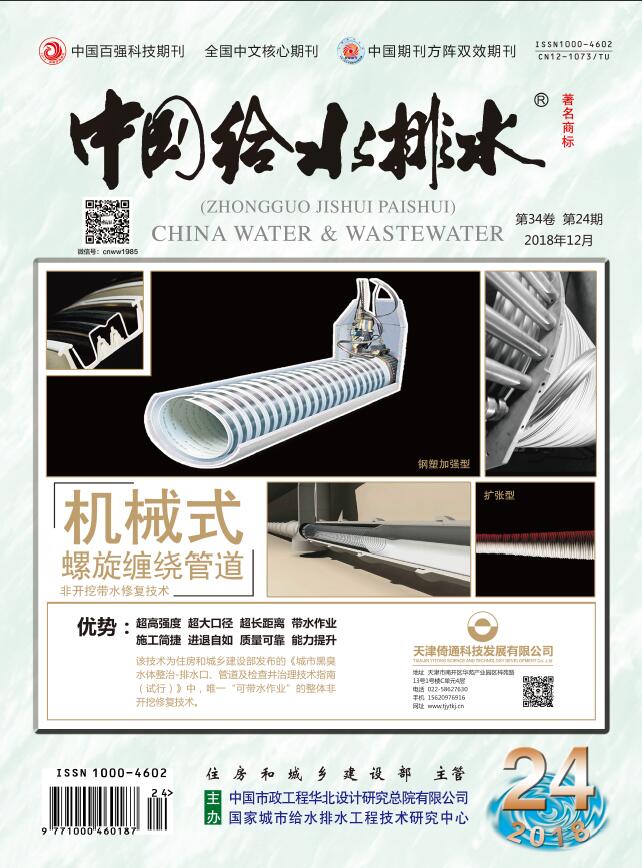ZHOUBing-jie,CHENHan,LINTao.Effect of UV/H2O2 Oxidation of Alanine on Formation of Dichloroacetonitrile in Chlorination[J].China Water & Wastewater,2022,38(9):52-57.
Effect of UV/H2O2 Oxidation of Alanine on Formation of Dichloroacetonitrile in Chlorination
China Water & Wastewater[ISSN:1000-4062/CN:12-1073/TU]
volume:
第38卷
Number:
第9期
Page:
52-57
Column:
Date of publication:
2022-05-01
- Keywords:
- UV/H2O2; alanine; chlorination; dichloroacetonitrile
- Abstract:
- UV/H2O2 advanced oxidation process, which is widely applied in water treatment, was employed for pretreatment of alanine (a typical amino acid in water), and the formation of dichloroacetonitrile (a representative nitrogenous disinfection by-product) in post-chlorination process was investigated. The hydroxyl radicals produced in UV/H2O2 process degraded alanine through α-carbon hydrogen abstraction and amino hydrogen abstraction, and mainly three products were produced in 20 min: HN=C(CH3)—COOH, CH3—CH=NH and CH3—C≡N. The three oxidation intermediates exhibited higher dichloroacetonitrile formation potential compared with that of alanine, thus enhanced the formation of dichloroacetonitrile during post-chlorination. The effects of UV/H2O2 pretreatment time, initial alanine concentration, pH and other components in water (e.g., HCO3-, Cl-, and NO3-) on the formation of dichloroacetonitrile were further investigated. When the UV/H2O2 pretreatment time was increased from 0 to 30 min, the formation potential of dichloroacetonitrile increased first and then decreased, and reached the maximum value at 20 min. The increase of alanine concentration and the decrease of pH were beneficial to the formation of dichloroacetonitrile. The presence of HCO3- and Cl- both inhibited the formation of dichloroacetonitrile, while the presence of NO3- had no significant effect on the formation of dichloroacetonitrile.
Last Update:
2022-05-01

